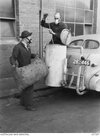Sean K
Moderator
- Joined
- 21 April 2006
- Posts
- 22,183
- Reactions
- 11,370
Hon PJ Keating failed to tell his audience that some of his thoughts may be as a paid shill for the CCP.
Most people would understand that what it means when you get paid by an entity, you support that entity.
Don't know how long he has been on the CDB board, or how much he is paid, but those French Clocks don't come cheap, even on a generous Parliamentary salary.
The thought just popped into my head that Rederob may actually be PJK with a Pseudonym.
There is some similarity in style.
Mick
View attachment 154432
He said in the interview that he was only paid $5K and is now paid nothing. Hard to believe, but if so, he's now doing their work gratis.



